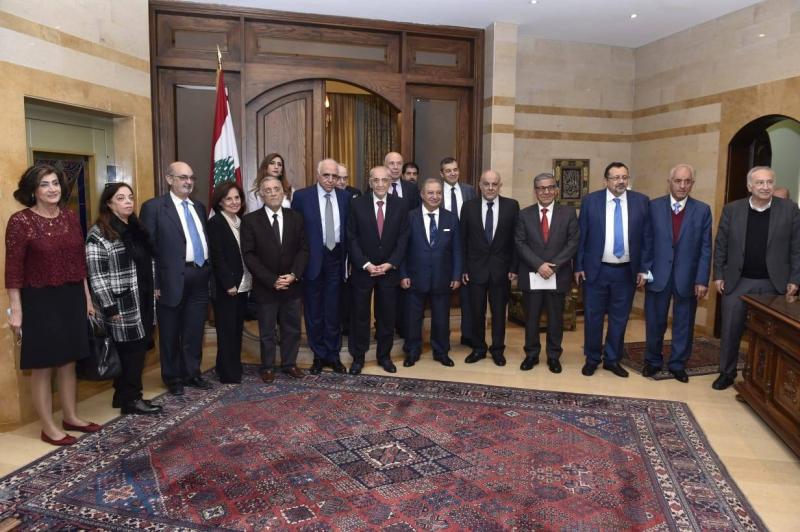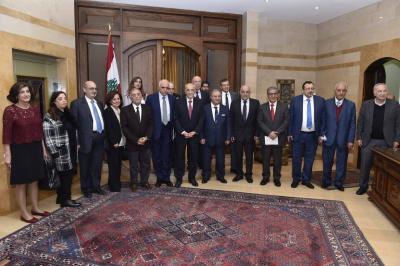Parliament Speaker Nabih Berri expressed that necessities allow for exceptions, questioning the logic behind enduring crises while some are attempting to disrupt everything. He noted that the strength of the presidency cannot be based on the claims people hide behind. In this context, Berri asked: "Who is Sleiman Frangieh? Was he not a candidate when President Emile Lahoud was extended? Was he not nominated by Ambassador David Hale? Was he not a candidate when General Michel Aoun was a nominee?"
During a meeting with the Press and Editors Syndicates headed by Presidents Aouni Al-Kaaki and Joseph Qassef, Berri remarked, "Allow me to speak as a Maronite; I have a stake in the Maronites. I am Lebanese, and the Maronites began in the north and expanded from there to all of Lebanon, and Frangieh is a son of that north."
He added, "In the previous elections, did not the Christian and Maronite leaders meet in Bkerke, and that day agree on four names, from among whom whoever is elected would represent the Christians and the Lebanese? Was not Sleiman Frangieh one of those four?" He emphasized the need for a president who can engage with Syria on border demarcation and the resolution of the displacement crisis, stating, "If we are going to rely on the Europeans and Americans, they are indifferent to this issue. We want a president capable of addressing the defense strategy, one who believes in the Taif Agreement, and based on all of this, we nominated Mr. Sleiman Frangieh."
Berri stated, "A wise person is not just the one who knows good from evil; a wise person is one who knows good from two evils. A national president is required who unites, not divides." He reminded that he announced at the Imam Moussa Sadr Festival in Tyre regarding the presidential election that "we need a national president who unites and does not divide, with Christian and Islamic stature, and above all, a national stature; a president who gathers rather than separates, who believes in Lebanon's relations with its Arab surroundings, and who believes in the Taif Agreement." Berri questioned how these titles can align with voices calling for division and federalism masked under the titles of expanded administrative and financial decentralization, likening Lebanon to an atom that, if split, would explode. He pointed out that Lebanon is too small to be divided.
Berri added that after five months of vacancy and amid financial and economic collapse, and following the rejection of the calls he has issued for dialogue—which most blocs responded to except for the two main blocs—it is no longer acceptable to continue thus, and there was no option but to proceed with nominating a name possessing the attributes he mentioned in his August 31 speech on the anniversary of Imam Sadr’s disappearance in Tyre. He discussed dialogues with international parties, especially with ambassadors from the five countries, thanking them for the support they would provide to the person chosen.
Berri concluded that the political solution starts with the presidency, asserting that Sleiman Frangieh has reached out to everyone, favoring all people. If Sleiman Frangieh does not unite, who will? He confirmed that there is no salvation for Lebanon except through a civil state. He added that our adherence to the Taif Agreement is because it provides a framework for ending the war and allows Lebanon and the Lebanese to pursue a developed path that preserves sects and limits sectarianism, stating that the entry point for this is the implementation of Article 22 of the Constitution; if we do not transition to a civil state, Lebanon will not recover.
Regarding his meeting with the Saudi ambassador, Berri stated that communication has continued and will continue, and several meetings had occurred before this encounter.




